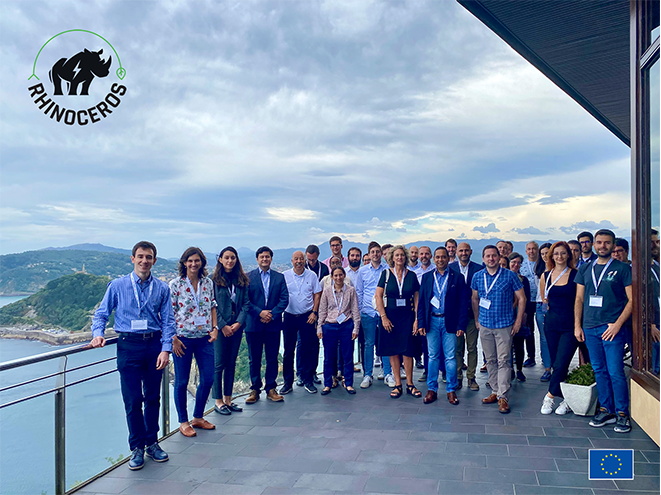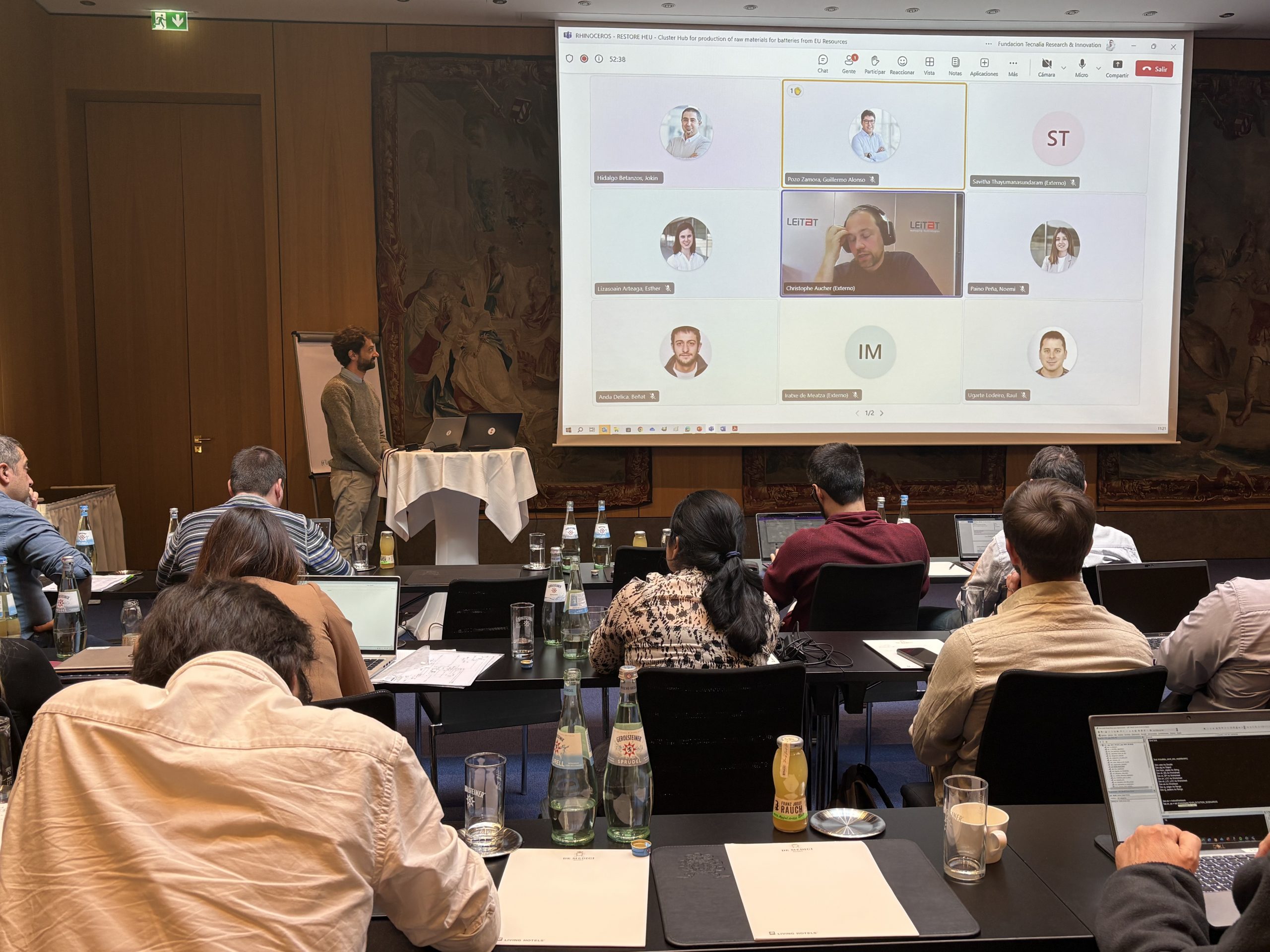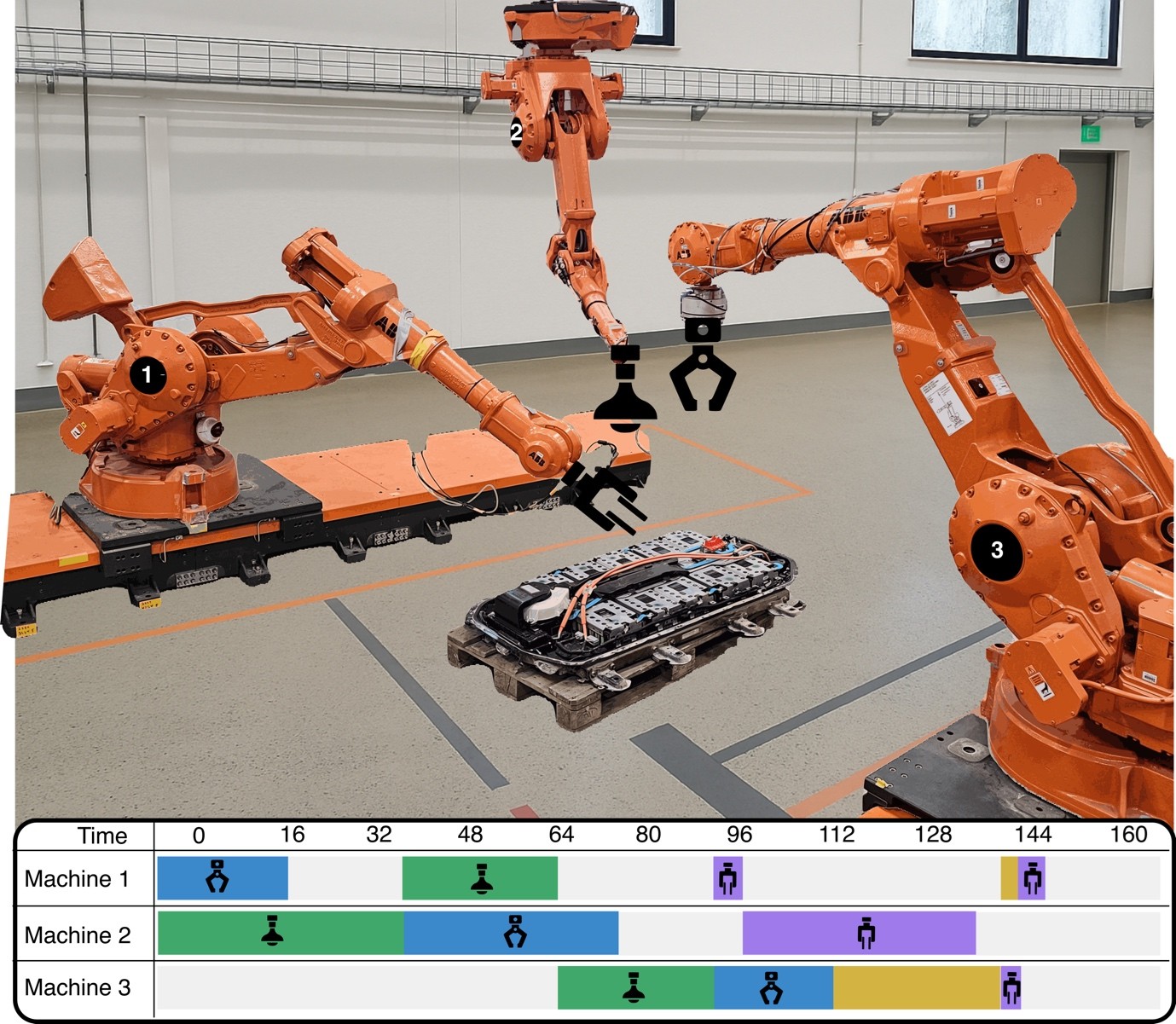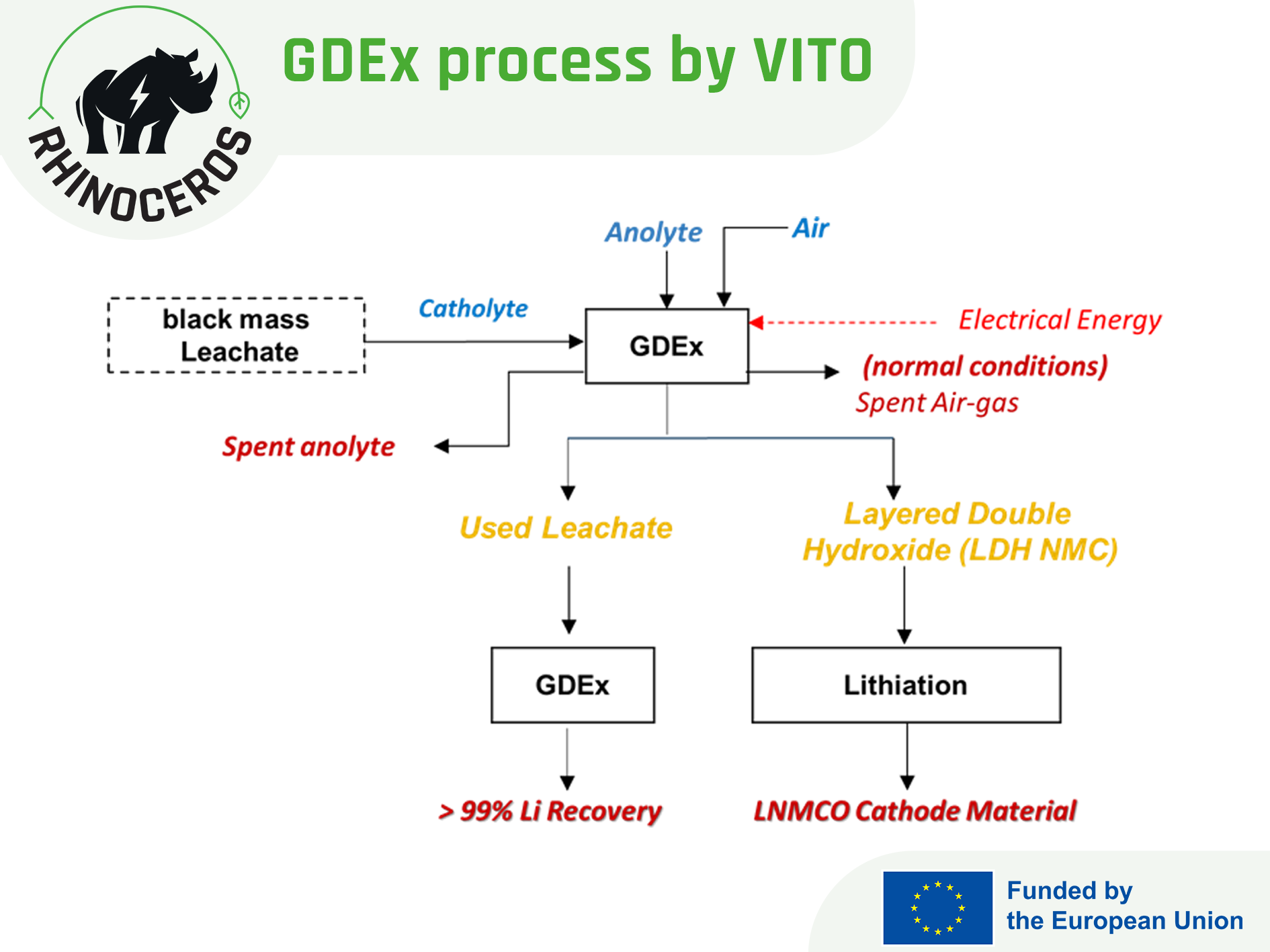News
The Rhinoceros research & innovation project in pursuit of new routes towards sustainable reuse and recycling of lithium-ion batteries
13/09/2022
In September 2022, a new Horizon Europe project was set in motion. Funded by the European Climate, Infrastructure and Environment Executive Agency (CINEA) with € 8.943.025,75 under Grant Agreement N° 101069685, this 4-year project will facilitate access to battery materials by developing an innovative, circular, and highly performing processing chain that will repurpose or target the recovery of most of the materials from end-of-life (EoL) batteries at high purity and competitive prices.
On 13 September 2022, the consortium members – business, technological and scientific experts from 9 European countries, met in San Sebastian (Spain) to establish future collaborations within the RHINOCEROS project – “Batteries reuse and direct production of high performance cathodic and anodic materials and other raw materials from batteries recycling using low cost and environmentally friendly technologies”.
As reliable energy storage solutions for electrified mobility, stationary storage and consumer electronics, Lithium-ion batteries (LIBs) are at the forefront of Europe’s climate and environmental sustainability; yet the market growth generates an increasing demand for battery raw materials. Currently depending mainly on imports for LIBs, Europe is investing in innovative recycling technologies that will recover not only valuable raw materials, but also, whenever possible, all components of the cells, thus increasing sustainability.
The project aims to develop, improve and demonstrate economically and environmentally viable routes for recycling EoL LIBs from electric vehicles (EVs) and stationary energy storage systems. Within the project, these innovative solutions will be tested and demonstrated in industrially relevant environments. To achieve these ambitious results, partners involved in the RHINOCEROS project will work on seven different objectives:
- Develop a smart sorting and dismantling system that enables the automated classification and dismantling of LIBs from EVs and stationary energy systems and the reassembly of operational modules in new repurposed batteries.
- Propose novel solutions for the reuse and repurpose of batteries for second life applications.
- Develop a set of cost-efficient, flexible and environmentally friendly routes targeting the recycling of all materials present in LIBs (g., metals, graphite, fluorinated compounds and polymers, active materials).
- Identify and address health risks, environmental impacts, safety hazards and new safety practices related to the developed processes; perform cost analysis.
- Validate the recovered material through the synthesis of new high-performance electrodes and elements for next generation batteries – thus demonstrating the circularity, societal, environmental and economic benefits.
- Validate the most promising process at TRL 6 pilot level.
- Disseminate, communicate and exploit the results of the project amplifying their impact.
As input material considered in RHINOCEROS are EoL LIBs from EVs and stationary energy storage, which are the main contributors to the rising demand for LIBs in Europe, this promising project will have a significant impact on EU’s vision to roll out its zero-emission mobility and storage of intermittent renewable energy by 2030. Thus, the project will decrease Europe’s dependency on critical raw materials (CRMs) imports, such as Li, Co, and graphite, by demonstrating a recycling route from local EU resources.
Founded on an interdisciplinary approach covering physics, chemistry, material design, robotics, engineering, manufacturing, business, and economics, the RHINOCEROS project will be coordinated by the Spanish independent research and technology organisation Tecnalia Research and Innovation. The partners involved will be working on different topics, from the optimisation and development of technologies, to the communication, dissemination and exploitation of results.
Project coordinator, Dr. Lourdes Yurramendi Sarasola stated: “To bring Europe to an increased independence level from foreigner batteries manufacturers and external raw material providers we need to develop a closed material loop that ensures the security of supply by the use of low cost and environmentally friendly recycling technologies to recover not only the valuable elements but also the cell components”.

News





